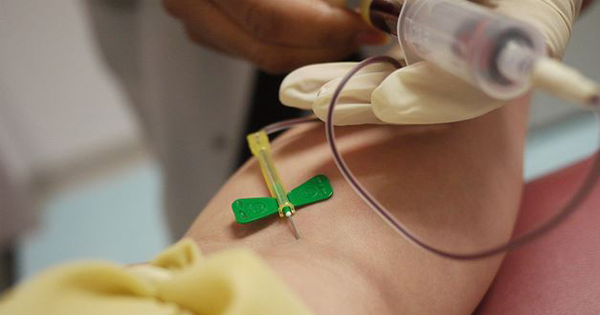Advertisement
Do you know every virus your body has ever fought off? Probably not. But, according to a groundbreaking new study in Science, you might be able to find out soon.
Researchers believe they have developed a blood test that can actually identify every virus your body has ever encountered in the past.
While the test is still in its beginning stages, it has already started giving us insight into just how similar people’s immune systems are around the world.
According to the study, every person has “immunological memory,” meaning our immune cells actually remember viruses we’ve dealt with in the past—even if we don’t know it.
This biological system essentially helps speed up our immune response to the same viruses in the future, so they’re easier to fight off the next time around.
Using this tool, the researchers have been able to figure out the virus history for more than 500 people across four continents.
The first step was for researchers to create a “viral library” from a public database of protein sequences belonging to viruses we already know about.
Thanks to a genetic engineering trick, they were able to turn lab-made pieces of virus DNA into "bacteriophage," bacteria that infect viruses.
According to The Verge, “the bacteriophage displayed a synthetic representation, or marker, of a given virus’s proteins on their surface—proteins that a person's immune system would only recognize if they had already encountered the virus.”
To put it more simply, Benjamin Larman, an immunopathologist at Johns Hopkins University and a co-author of the study, compared the process to fishing with bait—the bait being the patient’s antibodies, which search for specific viruses in a big pond full of viruses.
"We're using the patient's antibodies to pull out the viruses that they've been infected with," Larman explained.
Recent advances in DNA synthesis have made it possible for researchers to develop this new method, called “VirScan.”
Because the FDA’s regulatory process requires validation through different experiments, VirScan will not be available to the public for at least 5-10 years.
Something else to consider is that this incredible new technology cannot discover new viruses—only the ones we already know about.
Being able to figure out where certain viruses pop up most, however, can give researchers a much better idea of whether or not geography has a strong impact on people’s responses to different infections.
What are your thoughts? Let us know in the comments!
Photo Copyright © 2011 Thirteen Of Clubs/Flickr




